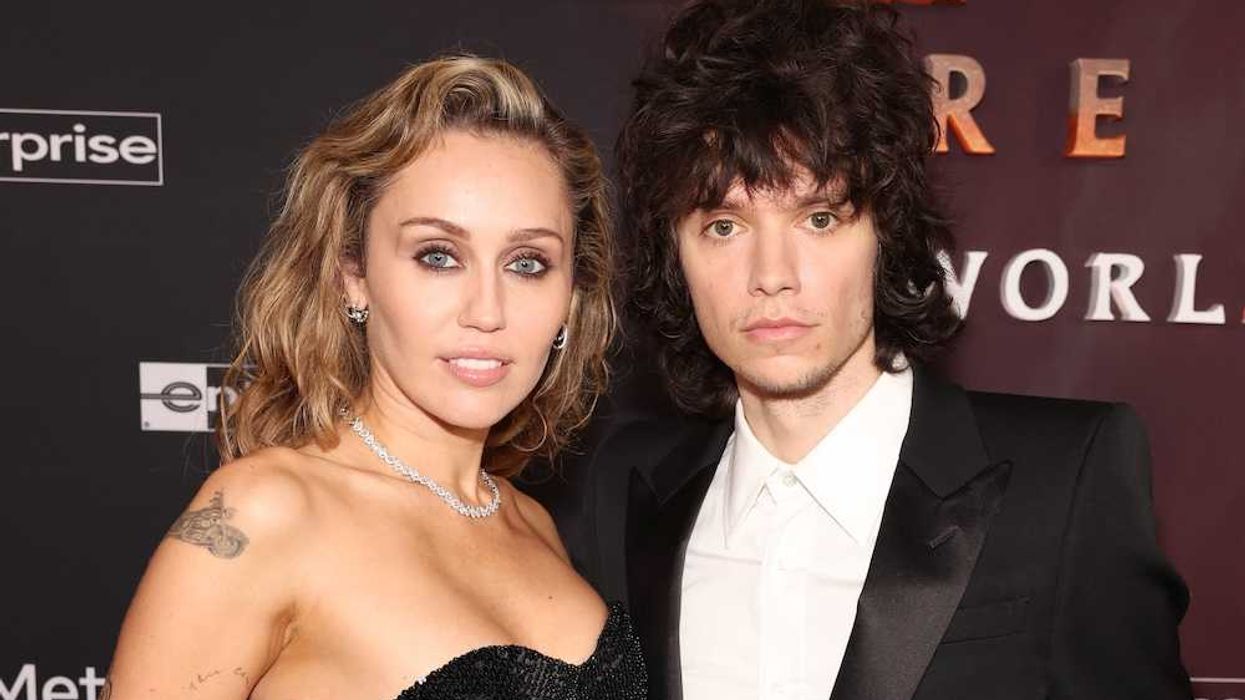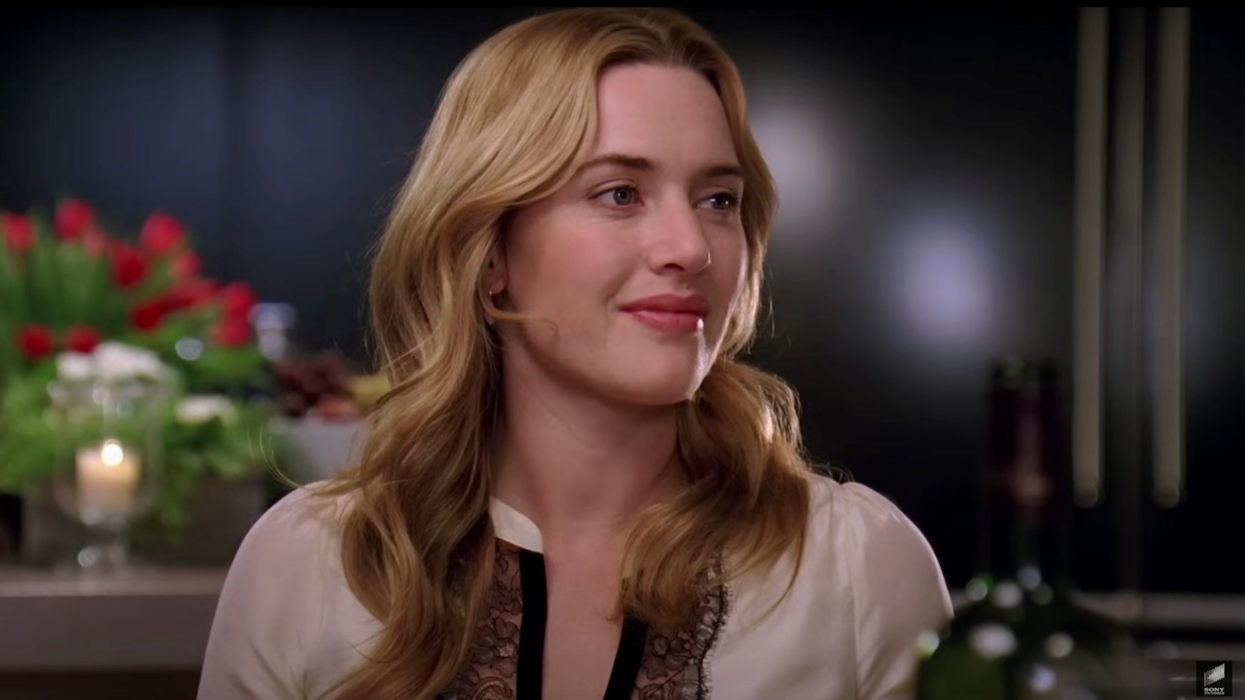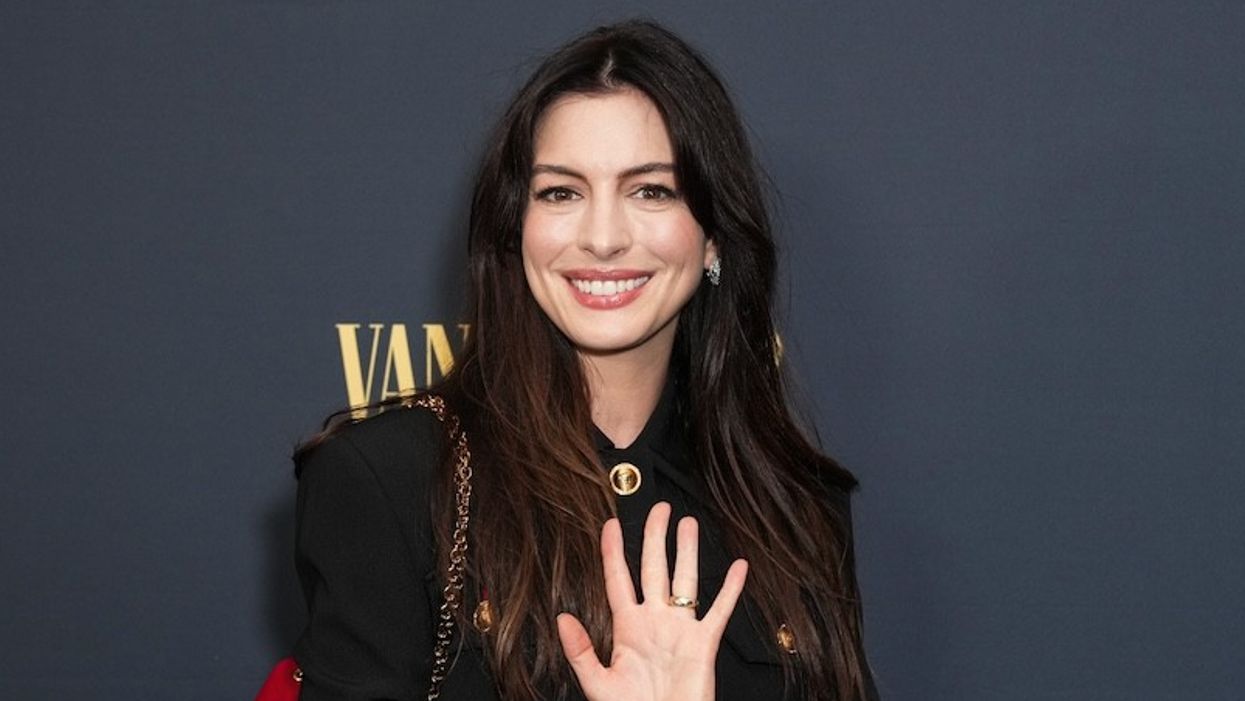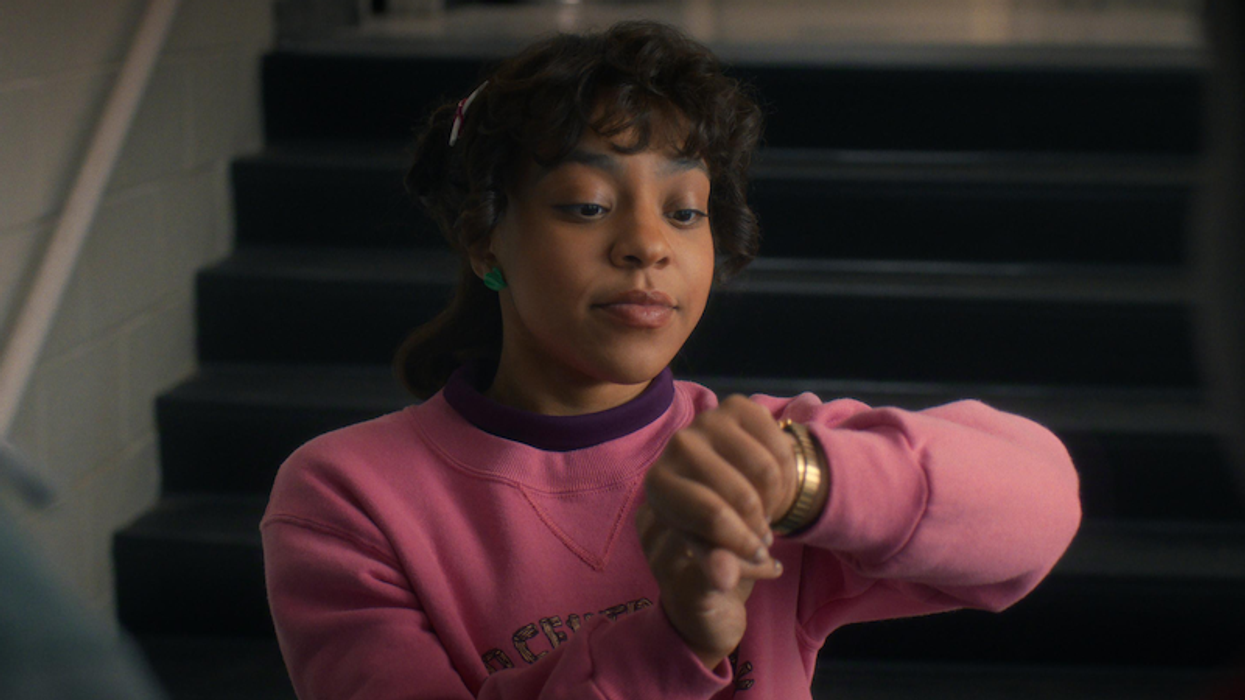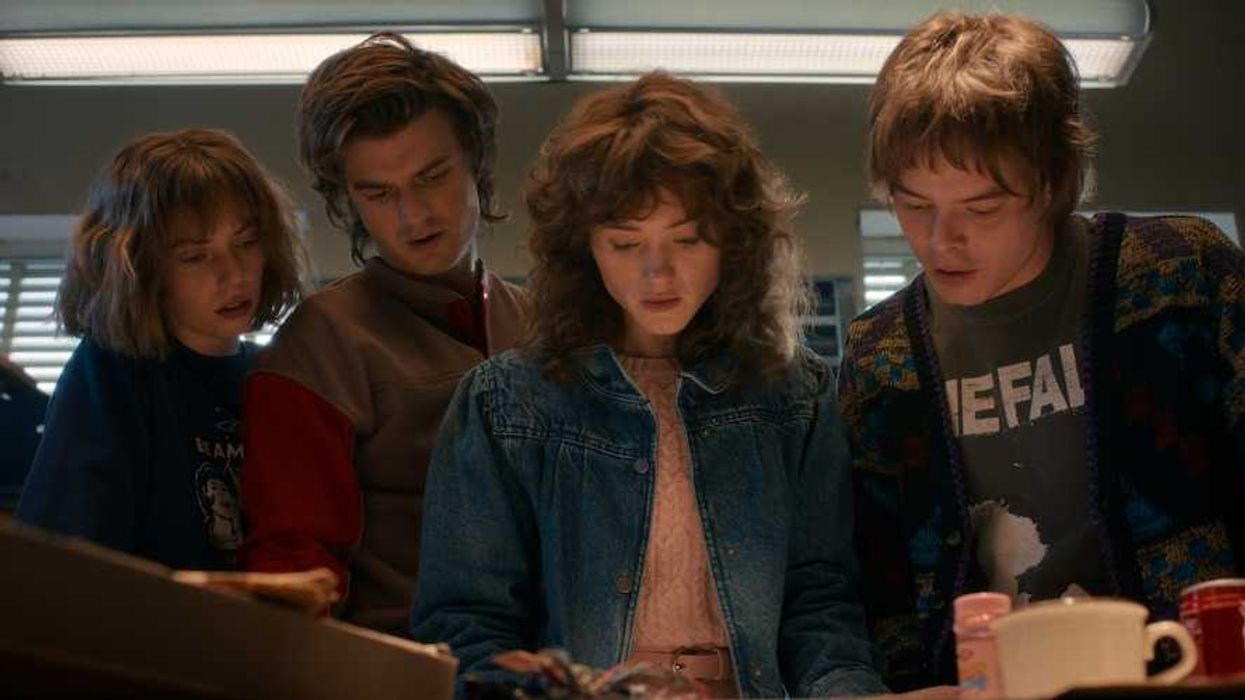Greta Gerwig's latest film juggles a lot — but Margot Robbie and Ryan Gosling shine.
"Barbie" Review: The Colorful Movie’s Greatest Weakness Is Also Its Greatest Strength

(L-r) MARGOT ROBBIE as Barbie and RYAN GOSLING as Ken and in Warner Bros. Pictures’ “BARBIE,” a Warner Bros. Pictures release.
Chloe Williams serves as B+C’s Entertainment Editor and resident Taylor Swift expert. Whether she’s writing a movie review or interviewing the stars of the latest hit show, Chloe loves exploring why stories inspire us. You can see her work published in BuzzFeed, Coastal Review, and North Beach Sun. When she’s not writing, Chloe’s probably watching a Marvel movie with a cherry coke or texting her sister about the latest celebrity news. Say hi at @thechloewilliams on Insta and @popculturechlo on Twitter!
One of the final scenes in Greta Gerwig’s highly-anticipated Barbie movie feels par for the course when you think about the director’s past work. Barbie and Ken’s tearful conversation about identity and love is so open-hearted that you almost forget you’re watching a movie about toys.
What’s less expected is that the conversation takes place, unironically, against a backdrop of brightly colored plastic and kitschy outfits. This is one of the many moments that feels like the film’s thesis because it perfectly highlights the duality of Barbie — and of what it means to be a human, even though both characters are not, in fact, human.
This offering of beautifully shiny existentialism runs through the story as we move between fantasy caricatures (composed of every shade of pink imaginable, blowout dance parties, and men actually listening when you say you want to be left alone) and the intricate pains of reality.
Follow The Pink Brick Road
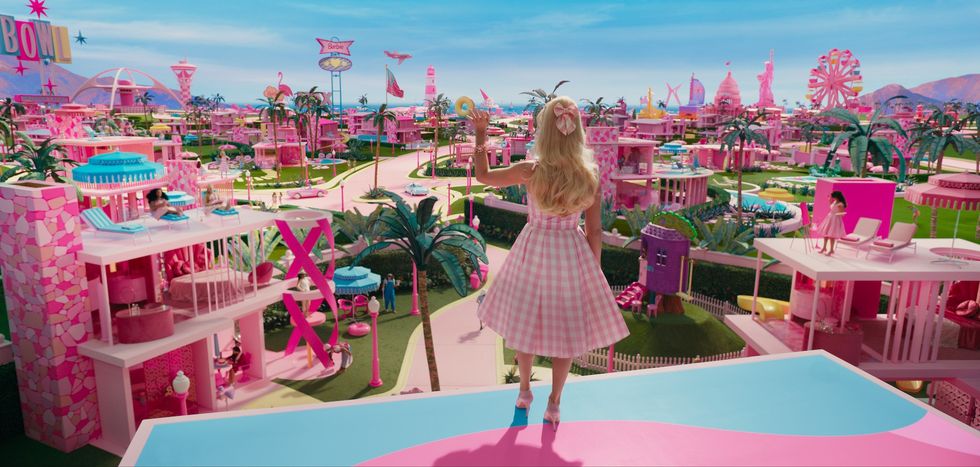
MARGOT ROBBIE as Barbie in Warner Bros. Pictures’ “BARBIE,” a Warner Bros. Pictures release.
Image via Warner Bros. Pictures
Everything is perfect in Barbieland. That is, until Stereotypical Barbie (played by Margot Robbie, who also executive produces the film) begins experiencing symptoms of a serious malfunction. These symptoms include but are not limited to: impending thoughts of death, flat feet, and, to everyone’s horror, cellulite. Taking advice from Kate McKinnon’s Weird Barbie, our lead learns that she has to enter the real world and figure out what’s going on with the human who owns her doll form.
With Ryan Gosling's Ken (who has no purpose in Barbieland independent of Barbie) and her neon roller blades in tow, Barbie sets out for the wonderful world of California. However, she does not receive the welcome she expects.
Instead of finding that women's problems in the real world have been fixed, Barbie finds herself objectified and catcalled. She's also brought to tears when pre-teen Sasha, her aforementioned owner, accuses her of being a source of unrealistic beauty standards instead of empowerment. Ken, on the other hand, has a great time thanks to the benefits of patriarchy, but more on that later.
It turns out that Barbie’s existential crisis can be chalked up not to Sasha, but to her mom Gloria, played by America Ferrera. Gloria is a tired Mattel employee who doesn’t know how to connect with Sasha anymore, and her sadness and fears have led Barbie to malfunction.
(On a side note, the black marker that Gloria uses to draw feels like the reason America Ferrera's red carpet looks for the film were all black, a stark contrast to Margot Robbie’s doll-inspired looks. I’m obsessed.)
After she's almost captured by Will Ferrell’s bumbling Mattel CEO, and has a run-in with Barbie creator Ruth Handler, the blonde escapes back to Barbieland, taking Gloria and Sasha with her. But when they return, they learn that Ken has brought the ideologies of the patriarchy back with him, changing Barbieland forever.
Where Humor Meets Heart
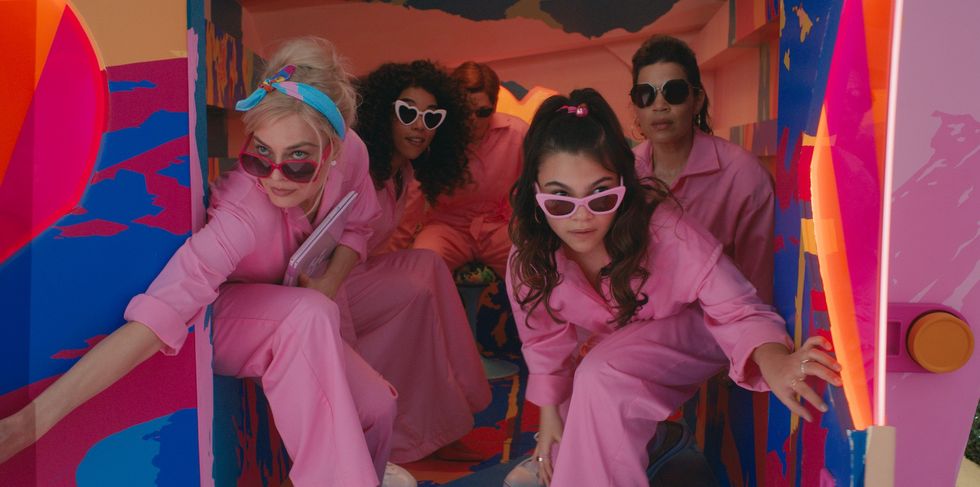
(L-r) MARGOT ROBBIE as Barbie, ALEXANDRA SHIPP as Barbie, MICHAEL CERA as Allan, ARIANA GREENBLATT as Sasha and AMERICA FERRERA as Gloria in Warner Bros. Pictures’ “BARBIE,” a Warner Bros. Pictures release.
Image via Warner Bros. Pictures
When word of Greta Gerwig’s film began circulating, namely that the original script was so outlandish Margot Robbie didn’t think it was going to be greenlit, I remember thinking there was no way it could be *that* crazy.
But in a hilarious campaign to restore order in Barbieland, the Barbies band together to turn all of the Kens against each other. The jokes — about film bros, about Mattel, even about Gerwig herself — are consistent throughout the whole movie but only seem to get funnier as the chaos unfolds.
The quips are so pointed that half the time, I wasn’t sure whether I was laughing because the joke was funny or because I couldn’t believe they thought to include it. A certain fake commercial about Depression Barbie, complete with a binge watch session of the 1995 Pride & Prejudice (which I do actually watch every year in one sitting), nearly made me fall out of my seat.
If the film has any flaw, it’s that I anticipated the entire thing to pair that humor with the ethereal emotion I love in Gerwig’s Lady Bird and Little Women. But during the first two acts, the story is carried by its comedy and wit, leaving the strong emotion for the final 30 minutes.
Ken’s quest to bring the patriarchy (which he thinks is just a celebration of men and horses) to Barbieland — and the realignment of power — is funny for a while, but it goes on for so long that it ends up taking up space that could have been shared with further character development.
In an attempt to feel juxtaposed, the script's humor and heart can come off as disjointed. So while Barbie juggles a lot quite live up to the hype of being the most life-changing movie of all time in my opinion, it is still, without a doubt, one of the best movies of the year.
Carrying both that humor and emotion, Margot Robbie and Ryan Gosling are a wonder as Barbie and Ken. It feels like a breath of fresh air to watch a movie that bares all and is fun just for the sake of being fun. There’s no hidden message, nor do you need to do mental gymnastics to figure out what the filmmakers may or may not be saying.
Barbie's Final Message
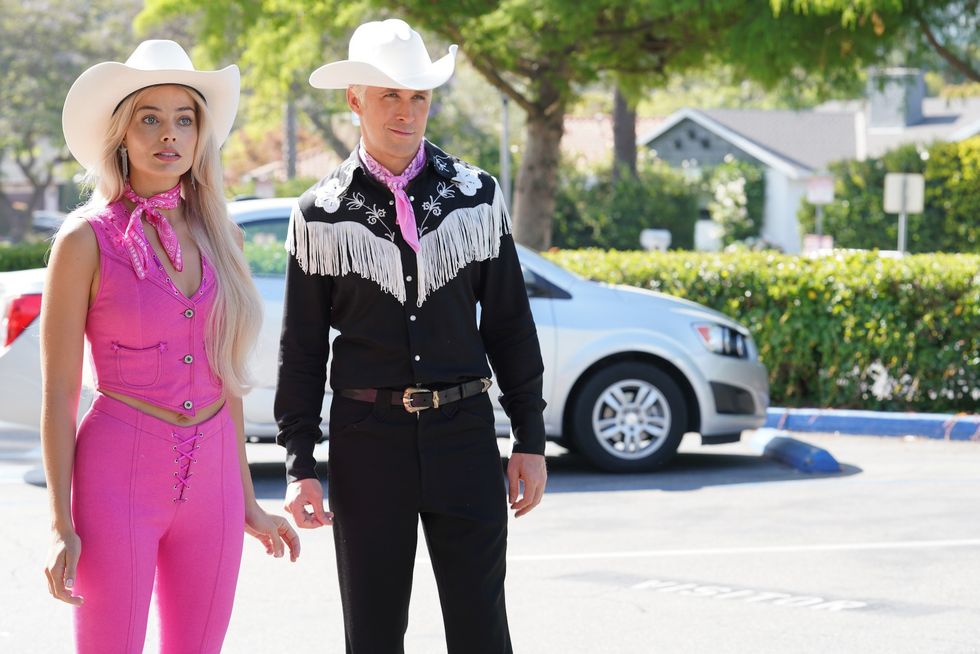
(L-r) MARGOT ROBBIE as Barbie and RYAN GOSLING as Ken and in Warner Bros. Pictures’ “BARBIE,” a Warner Bros. Pictures release.
Image via Dale Robinette/Warner Bros. Pictures
In those final emotional scenes, Ruth Handler reappears to help Barbie understand what her ending is supposed to look like. She’s said goodbye to the rest of the Barbies and to Ken, and stands with Ruth in a kind of dreamy middle ground between worlds.
Barbie tells Handler she doesn’t want to spend her life as an idea — she wants to be the one doing the imagining. Even if she doesn’t know exactly what she wants, Barbie wants the agency to figure it out, so Ruth takes her hands and shows her what it means to be human. As home video clips of mothers and daughters, laughter, and tears play against Billie Eilish’s “What Was I Made For?,” I immediately began to cry.
It serves as a reminder that even though life can be confusing and difficult, we're not in it alone. One of the unique experiences about being a viewer in Barbie is that you don’t feel like a viewer, you feel like another Barbie. You’re let in on the narrator’s jokes, you get a fresh look at the world, and you feel the joys and the pains of humanity alongside Robbie.
Even with its flaws, Barbie serves as a balm that reminds us why we love the dolls: the belief that the world could be more beautiful than it is, and that empowerment isn’t tied to one definition. The hope and optimism I felt walking out of the movie made me feel like a little girl again — not because it told me what my life should look like, but because it reminded me that I have the power to choose.
Did you love the Barbie movie? Let us know in the comments and check out our email newsletter for more movie reviews and pop culture content.
Lead image via Dale Robinette/Warner Bros. Pictures






